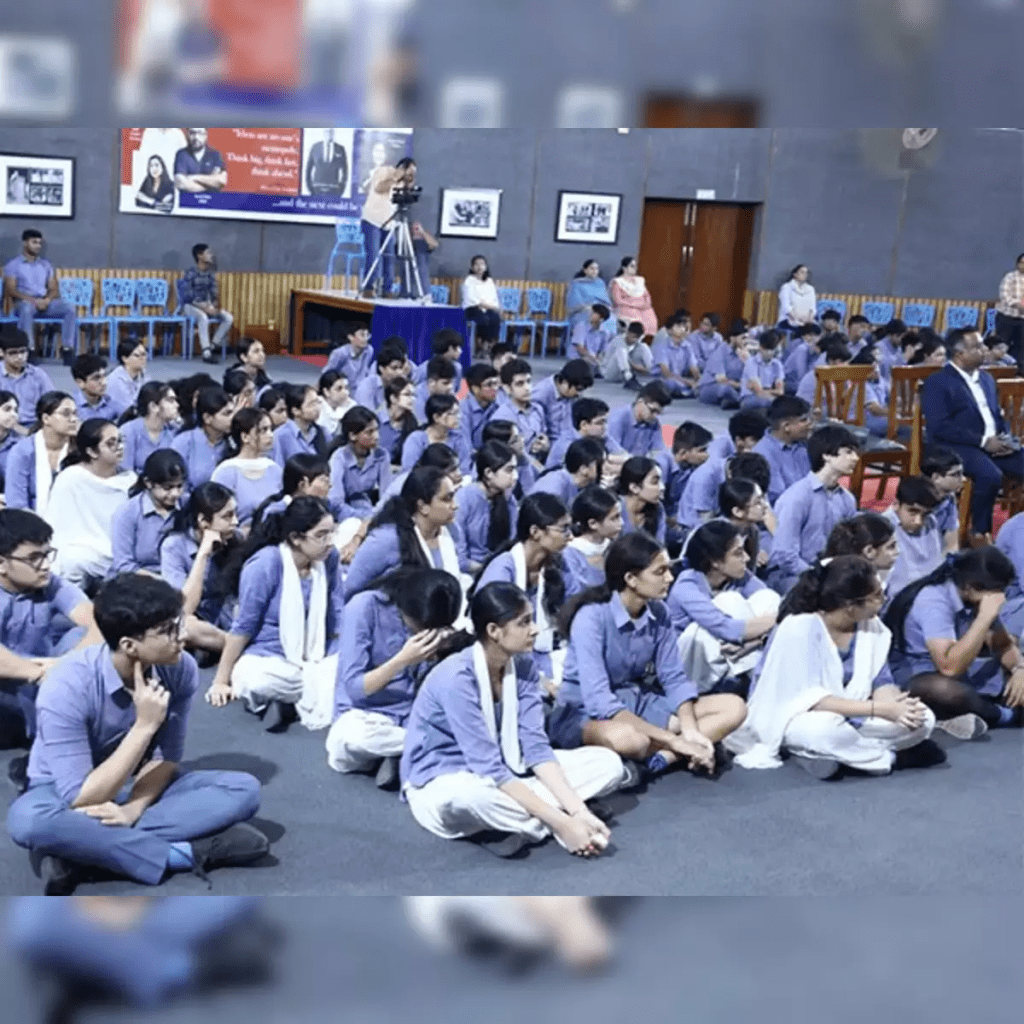
In a major step to uphold academic integrity, the Central Board of Secondary Education (CBSE) has issued a stern warning to Class 12 students and schools engaging in the practice of enrolling “dummy students.” Students who are not attending regular school classes and are instead enrolled in dummy schools may be barred from appearing in the CBSE Class 12 board exams, according to senior CBSE officials.
The warning comes after the Board conducted a series of surprise inspections in December 2024 across 29 schools in cities including Delhi, Bengaluru, Varanasi, Gujarat, Chhattisgarh, and Bihar. The goal of these inspections was to assess the rising trend of dummy school enrolments, particularly among students preparing for highly competitive exams like NEET and JEE.
Key Highlights:
What Are Dummy Schools?

Dummy schools are educational institutions that exist primarily on paper. They allow students—especially those in Class 11 and 12—to be officially enrolled so they can appear in board examinations, but without requiring them to attend regular classes. Instead, these students focus entirely on coaching for competitive exams, often through private institutes.
In Kota, the coaching hub of India, posters and advertisements of dummy schools are plastered across the city. These schools openly offer packages that range in pricing depending on the education board—be it CBSE, state boards, or others.
CBSE’s Surprise Inspections: A Reality Check

The CBSE’s inspections uncovered widespread misuse of the school enrolment system. Some schools were found to have enrolled hundreds of students who never physically attended a single class. These students were completely disengaged from the school’s academic calendar, internal assessments, practicals, or co-curricular activities—criteria mandatory under CBSE norms.
The CBSE stated in an official note, “Such practices not only violate affiliation norms but also compromise the credibility of board examinations. Strict actions, including disqualification of students and penalties on schools, will be taken.”
Responsibility Also Lies With Parents and Students

While schools are clearly at fault for enabling the dummy school system, the CBSE emphasized that parents and students are also responsible. “The onus of ensuring a student’s regular academic engagement is shared by the parents. Enrolling in a school simply to obtain a certificate, without active participation in education, is unacceptable,” a CBSE official told Hindustan Herald.
This shared responsibility has become increasingly important as more students, with the support of their parents, opt to avoid traditional schooling entirely in their final two years.
Quota Loopholes and State-Based Admissions

One of the underlying motivations behind enrolling in dummy schools is the manipulation of state-based admission quotas in higher education. For example, candidates who complete Classes 11 and 12 in Delhi are eligible for Delhi State Quota seats in medical colleges, prompting many students to switch schools strategically.
This loophole not only disadvantages genuine students from the state but also distorts the equitable distribution of education opportunities.
Psychological Impact and Expert Concerns

Mental health experts have also raised serious concerns about the dummy school culture, especially in coaching hubs like Kota. The city witnessed a record high in student suicides in 2024, underscoring the immense pressure students face when disconnected from traditional academic and social settings.
“Students who skip regular schooling often lack essential emotional and personality development. They miss out on peer interactions, extracurricular growth, and teacher guidance, which are vital for holistic education,” said Dr. Alok Mehta, a child psychologist based in Delhi.
He added that a system entirely focused on rote learning and coaching—without the emotional cushion of a school environment—can lead to anxiety, burnout, and isolation.
What Happens to Dummy Students Now?

If CBSE moves forward with its new policy, students enrolled in dummy schools may face the following consequences:
- Disqualification from board exams
- Denial of admit cards
- Cancellation of practical marks
- Blacklisting of schools involved
The Board is likely to finalize its enforcement strategy ahead of the Class 12 board examinations scheduled for early 2025. Additionally, internal mechanisms will be tightened to ensure only active students can appear for practicals and final exams.
Schools caught violating the norms may face derecognition or heavy penalties. “We are in the process of cross-verifying school attendance data with digital submissions from schools,” another CBSE official confirmed.
Possible Solutions and Policy Measures

Education experts suggest that while strict measures are necessary, the long-term solution lies in reforming the schooling and coaching system. A few proposed measures include:
- Integrating board curriculum with competitive coaching
- Monitoring regular attendance through biometric systems
- Limiting the number of private candidates per school
- Increased audits by CBSE regional offices
There have also been calls to establish a central portal where all student data—attendance, performance, internal assessments—can be monitored in real-time by the Board.
What Parents and Students Should Do Now

CBSE has advised parents and students to ensure compliance with school attendance norms. Those currently enrolled in coaching-dominated dummy schools must return to regular academic schedules or risk being disqualified from board participation.
Parents must demand accountability from schools and insist on active class participation. Schools, in turn, must report accurate enrolment and attendance figures to the Board.
The CBSE’s move against dummy schools in 2025 is a strong signal that academic integrity cannot be compromised. While coaching for competitive exams is essential, it must not come at the cost of formal schooling. For the Indian education system to thrive, coaching and classroom education must work in tandem—not as isolated systems.
As the board exam season approaches, students, schools, and parents must take note: the CBSE is watching—and this time, it’s serious.
The Hindustan Herald Is Your Source For The Latest In Business, Entertainment, Lifestyle, Breaking News, And Other News. Please Follow Us On Facebook, Instagram, Twitter, And LinkedIn To Receive Instantaneous Updates. Also Don’t Forget To Subscribe Our Telegram Channel @hindustanherald
